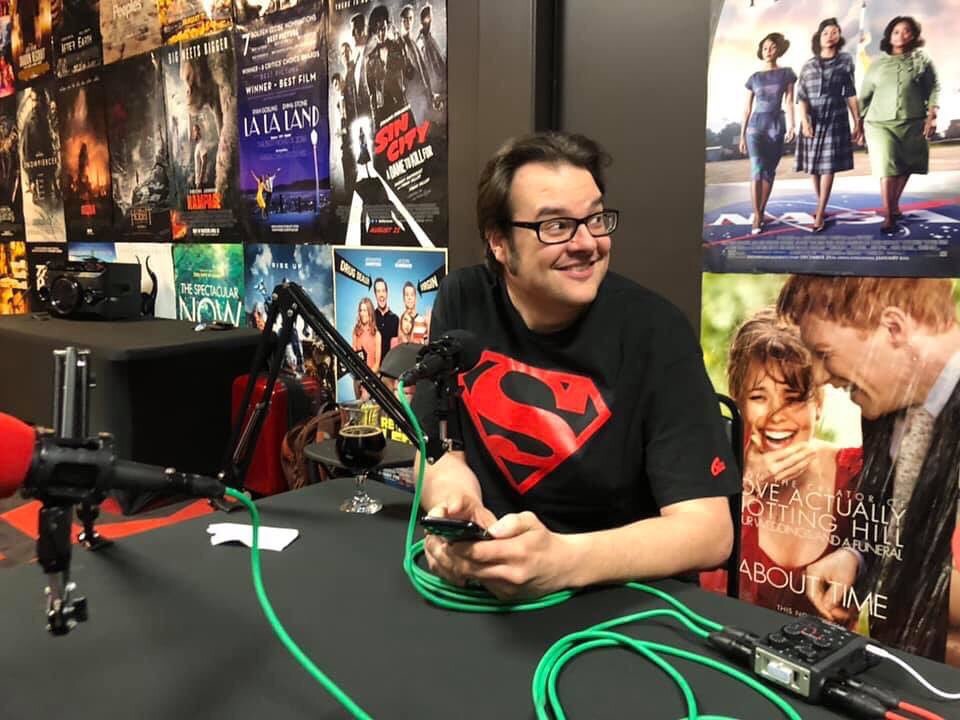Half a Book is Enough for 'Dune'
- Brad Gullickson
- Oct 19, 2021
- 4 min read
We review Denis Villeneuve's adaptation of the epic science fiction novel and uncover a film that operates perfectly well on its own.

A nagging worry settles over you as the film's title hits the screen, Dune: Part One. What's about to commence is not Frank Herbert's narrative; it's half of it. And we don't know whether Warner Bros. will bother with the second section if this thick, dense Denis Villeneuve brick fails to excite box office numbers. What we have here is all we could ever have, forcing the question, would we love Peter Jackson's The Fellowship of the Ring if The Two Towers and The Return of the King never came? That's such a horrible thought, and it poisoned the first fifteen minutes of my Dune watch.
However, eventually, Dune's first part burned away that uncontrollable future. The film is too damn rich and massive to ignore, and you must recognize the majesty that's contained within its two-and-a-half-hour runtime. We've already seen what happens when you apply shorthand to an epic. While previous filmmaking failures have produced two devilishly compelling movies (David Lynch's original and the documentary Jodorowsky's Dune), Villeneuve already achieves what they didn't by dropping the pace into first gear. His Dune cranks its gears slowly, pulling us into the treacherous politics that put men before sandworms.
An unseen emperor fears House Atreides. Their words have gained value across the Imperium, and in an effort to squash their power, the emperor gifts Duke Leto Atreides (Oscar Isaac) rule over the desert planet Arrakis. From its desolate soil, spice is mined, an essential ingredient for interstellar travel. Knowing that this leadership change will spark war between Atreides and the planet's previous governors, House Harkonnen, the emperor kicks back and relaxes as his problems kill themselves.
Born into this conflict is Paul (Timothée Chalamet), the Duke's son. He yearns to be a part of the action, swinging swords with his soldier pal Duncan Idaho (Jason Momoa), but duty and religion bind him. His words hold a power more primordial than his father's, and with a little practice, he can make others physically bend to his tongue. Then, there are the desert visions, suggesting a cataclysmic destiny on the horizon.
Dread beats in the heart of every player, and each actor makes a different use of it. There is a lonely sorrow worn on Isaac's face. He bucks against the grim hand he's been dealt, but in his small smiles, we witness a terrible recognition. Chalamet gracefully balances Paul's adolescent rebellion with otherworldly prophecy; he holds onto his childhood even as the plot pushes Paul into two-dimensional heroism.
Dune is busting with characters, and Villeneuve manages their emotional and narrative purpose by casting exquisitely. As the grotesque floating blob Baron Harkonnen, Stellan Skarsgård doesn't control much screentime, but what he does have, he commands with repulsive relish. Josh Brolin is present primarily to bark orders and intimidate, mission accomplished. Imprisoned as little more than a dream in Part One, Zendaya offers whispers and glares, but they have the same effect on you, the audience, as they do on Paul. You're transfixed, and when she does eventually appear as something more than a thought, her actions land with considerable impact.
And beyond plot and character, Dune is an insane visual eruption. Greig Fraser, the cinematographer who shot Star Wars: Rogue One, a trilogy of episodes from The Mandalorian, as well as the upcoming The Batman, matches Villeneuve's distant perspective, offering cold glimpses at hot emotions. Blending seamlessly with Patrice Vermette's production design and Jacqueline West's costumes, Fraser presents a frame as authentic as the best period pieces. The reality here is a historical text, no different than The Favourite or Dunkirk's.
Yes, the ending does hit a bit of a "what now?" Although, answering that question isn't too difficult even without the knowledge provided by the book or its previous adaptation. In many ways, Paul's most critical achievement is the victory he accomplishes in this film, not whatever Dune: Part Two may offer. We can surmise the narrative's next steps by this film's climax, and that causes you to ask a more significant question, "do we really need any more?"
If Dune: Part Two arrives, I will gladly watch it, but I do not tremble or lament at its possible absence. Dune: Part One provides. The film is a hearty banquette worthy of its own seconds. Free from whatever worry I brought into my first viewing, my second will satisfy even more so. And my third, and my fourth. Like Villeneuve's previous endeavors, Dune: Part One aches for revisitation; there are nooks, crannies, and grains of sand still waiting for harvest.
Quickie Review: Dune: Part One stands on its own as a grand, masterful sci-fi achievement. The cast is as astonishing as it is vast, and its spectacle delivers on its star wars context. Director Denis Villeneuve is the kid in the back of the classroom, arguing with the teacher, proclaiming big idea science fiction as valid and intellectually engaging as whatever dreck gets routinely validated as high school required reading. The heart sinks a bit when the credits roll seemingly in mid-sentence, but the lingering unknown on the other end is easily imagined. 9/10
Dune: Part One opens in select theaters and starts streaming on HBO Max on October 21st.







Comments